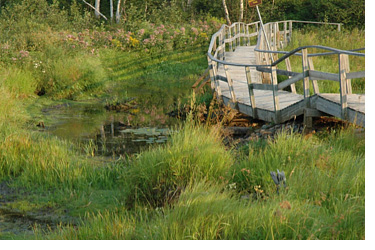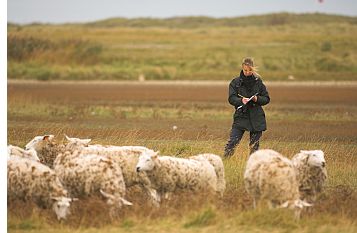News
SPIRAL "UK National Ecosystem Assessment" paper publshed
A new paper has been published based on work carried for SPIRAL, authored by Kerry Waylen and Juliette Young. This paper focuses on the first phase of the UK National Ecosystem Assessment.
Upcoming Event
No upcoming events.
Full description
 In this part of the project, we aim to contribute to the design, implementation and testing of science-policy interfaces for biodiversity in order to improve the effectiveness of science-policy interfaces regarding the conservation and sustainable use of biodiversity.
In this part of the project, we aim to contribute to the design, implementation and testing of science-policy interfaces for biodiversity in order to improve the effectiveness of science-policy interfaces regarding the conservation and sustainable use of biodiversity.
This is achieved through a number of real-life experiments (test cases), in which the project team directly contributes to science-policy interface design, implementation and/or assessment. This allows hands-on testing, reality check and feeding-back the teams’ expertise and results from other parts of SPIRAL into real-life science-policy interfaces.
Test cases are included in SPIRAL both as a way to deliver more practical results throughout the lifetime of the project and as a source of data and learning on science-policy interfaces.
Support the adaptive design of science-policy interfaces in a set of test cases
The partners within the consortium are involved in, or are steering, a series of science-policy interfaces at different levels (national, European and international). This gives a unique opportunity for the consortium to contribute to the implementation and testing of novel or improved mechanisms in real-life experiments.
 The principle used is that of adaptive design strategy. The identification of good practice and additional actions needed to improve science-policy interfaces in WPs 1 to 3 yields a multi-aspect understanding of current strengths, shortcomings, and factors facilitating or hindering effective science-policy interactions. Here we propose mechanisms building on what works and aiming at overcoming the major shortcomings identified in WPs 1 to 3 and in the test cases themselves.
The principle used is that of adaptive design strategy. The identification of good practice and additional actions needed to improve science-policy interfaces in WPs 1 to 3 yields a multi-aspect understanding of current strengths, shortcomings, and factors facilitating or hindering effective science-policy interactions. Here we propose mechanisms building on what works and aiming at overcoming the major shortcomings identified in WPs 1 to 3 and in the test cases themselves.
Particular attention is also be paid to:
- the development of techniques that facilitate the handling of complexity and uncertainty in integrating scientific insights and principles into biodiversity policies
- the effective integration of scientific, ethical, moral stewardship principles and economic concerns into science-policy interfaces operation.
These themes are anticipated to be key factors for effective science-policy interface operation.
We are aiming at extracting key lessons from the set of test cases and comparisons between them. Yet, due to the broad variety of cases and their context, a specific study process is defined for each test case.
Ad hoc physical and/or e-meetings with relevant actors and stakeholders involved in the science-policy interface are organised as appropriate. These allow for strategic thinking about the test case design, implementation and evaluation , as well as real-time discussions on the evolution of the test-case and debriefing. By running real-life experiments in science-policy interfaces operating at the sub-national, national, European and international level and in various contexts, we aim to explore processes with as wide a range of applications as possible. Operations across multiple scales is a key issue in biodiversity science-policy interfaces, and is at the core of current discussions on IPBES.
The lessons learnt in the test cases will be synthesised and generalised where appropriate to feed in the synthesis report at the end of the project. To this aim, a stakeholder validation workshop will be organized which will review, validate and refine the conclusions and recommendations emerging from it.
List of test cases
The following test cases are currently being studied, if you want to contribute or learn more about the state of the test case, please contact the member of the SPIRAL team as indicated below:
- AfriBES: A social network of scientific and technical information for Africa on biodiversity and Ecosystem services - contact: Driss Ezzine de Blas
- AMFN: the African Model Forest Network
- IPBES: Intergovernmental Platform on Biodiversity and Ecosystem Services - contact: Estelle Balian
- EU mechanism interfacing science and policy on biodiversity and ecosystem services - contact: Sybille van den Hove
- SEPI: Science for EU Environment Policy Interface - contact: Sybille van den Hove
- The Water Framework Directive in Romania - contact: Angheluta Vadineanu
- ZKO: Dutch National programme Sea and Coastal Research - contact: Eline van Haastrecht
- INBO: The Research Institute for Nature and Forest - contact: Hans Keune
- SCB: The Society for Conservation Biology - contact: Jari Niemela
- TEEB: The Economics of Ecosystems and Biodiversity - Phase 3 - contact: Heidi Wittmer
The selection of SPIRAL test cases (real-life science-policy interfaces to which SPIRAL provides formal or informal support) has been finalised and work has started on each of the cases.




